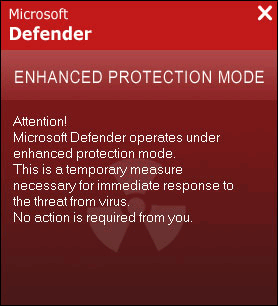Bittrex Email Scam
After a thorough examination, information security experts have determined that these emails are integral to a tactic operation. The perpetrators behind the scheme aim to lure unsuspecting individuals into divulging sensitive information. Their overarching goal is to gain access to cryptocurrency wallets and collect the digital assets contained within. Given this nefarious intent, it is crucial for recipients to dismiss both the deceptive Bittrex scam emails and the misleading Web page promoted within them. Vigilance and skepticism are paramount in thwarting attempts to compromise personal and financial security in the realm of cryptocurrency.
The Bittrex Email Scam Could Lead to Significant Financial Losses
The fraudulent Bittrex emails begin with a polite greeting, claiming to address the recipient urgently regarding a matter involving Bittrex, a cryptocurrency exchange. The emails then falsely state that Bittrex is on the verge of shutting down its services due to bankruptcy and assert zzw2 that the recipient's account, linked to the provided email address, holds a remaining balance exceeding $5,750.
To create a sense of urgency, the fraudsters express a supposed interest in facilitating a smooth withdrawal process to prevent the forfeiture of funds following the alleged platform shutdown. The emails provide detailed instructions for the withdrawal, outlining a specific time window during which the recipient is urged to click a displayed button and initiate the process. The fraudsters emphasize that failure to withdraw within the specified period will result in the loss of all remaining assets. The emails conclude with an email address for purported support.
The link provided, disguised as an 'Initiate Withdrawal' button and claiming to lead users to the Bittrex withdrawal portal, is, in reality, a tool utilized to redirect victims to a malicious website. On this fraudulent page, users are prompted to input their account details, including private keys or recovery phrases, under the guise of verifying ownership for the withdrawal process.
Unbeknownst to the victims, this information is harvested by the fraudsters, enabling unauthorized access to the cryptocurrency wallets. Once access is gained, the con artists have the ability to execute transfers of digital assets to their own wallets, effectively compromising the security and financial holdings of the unsuspecting victims. Vigilance is crucial to thwart such elaborate phishing attempts and protect against unauthorized access and potential loss of valuable cryptocurrency assets.
Con Artists Often Target the Cryptocurrency Space
Cryptocurrency enthusiasts are frequently targeted by fraudsters due to several factors that make them appealing and potentially vulnerable targets. Here are some key reasons why the hackers often focus on cryptocurrency enthusiasts:
- Digital Assets and Wealth:
- Cryptocurrency enthusiasts typically hold digital assets, which can be lucrative for fraudsters. Fraudsters seek to exploit the perceived anonymity and irreversibility of cryptocurrency transactions to make it difficult for victims to trace and recover collected funds.
- Lack of Regulation and Reversibility:
- Cryptocurrency transactions, once confirmed, are often irreversible. This lack of a chargeback mechanism makes it attractive for fraudsters, as they can execute fraudulent transactions without fear of the victim reversing the payment through traditional means.
- Limited Regulation and Enforcement:
- The decentralized and global nature of cryptocurrencies, combined with the limited regulatory oversight, makes it challenging for authorities to track and prosecute fraudsters. This perceived anonymity provides a level of protection for criminals engaging in fraudulent activities.
- Enthusiastic and Trusting Community:
- Cryptocurrency enthusiasts are often passionate about the technology and the potential for financial gain. Fraudsters exploit this enthusiasm by creating elaborate schemes and fraudulent projects that appear to align with the community's interests, making it easier to gain their trust.
- Early Adoption and Technical Expertise:
- Many cryptocurrency enthusiasts are early adopters who may have accumulated significant wealth through their investments. Additionally, they often possess a level of technical expertise. Fraudsters may target these individuals with complex schemes that exploit their knowledge gaps or overconfidence in their ability to navigate the crypto space.
- Fear of Missing Out (FOMO):
- The volatile nature of the cryptocurrency market creates a sense of urgency and FOMO among enthusiasts who fear missing out on potential profits. Fraudsters take advantage of this fear by creating fake investment opportunities or schemes that promise quick and high returns.
- Innovative Scheme Techniques:
- Fraudsters in the cryptocurrency space are known for adopting innovative and sophisticated techniques. They exploit vulnerabilities in smart contracts, conduct fake initial coin offerings (ICOs), and create convincing phishing websites that mimic legitimate crypto platforms.
Given these factors, it is crucial for cryptocurrency enthusiasts to exercise caution, conduct thorough due diligence, and stay informed about potential scams within the crypto space. Education and awareness are essential tools in preventing falling victim to the diverse range of scams targeting this enthusiastic community.


